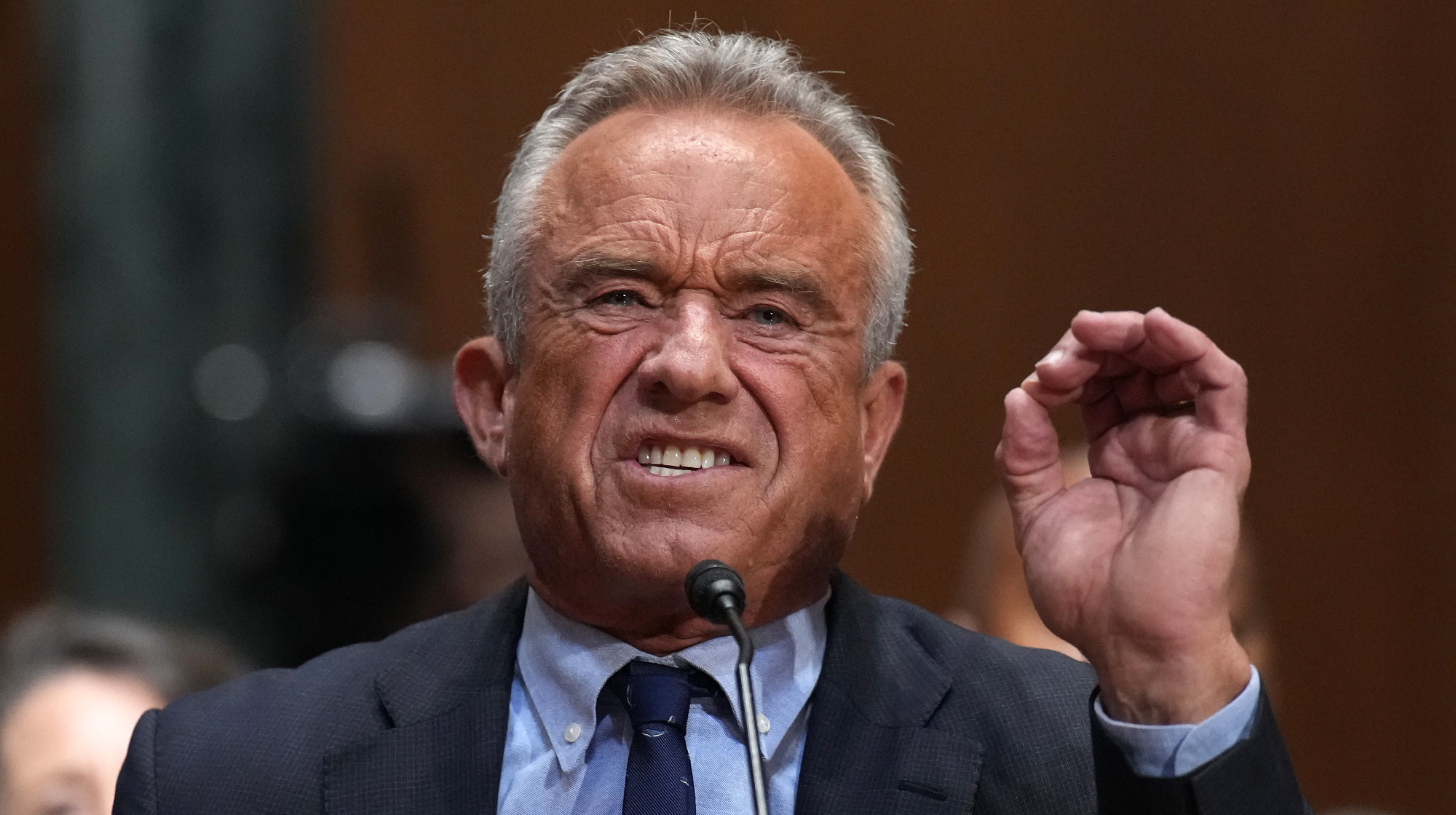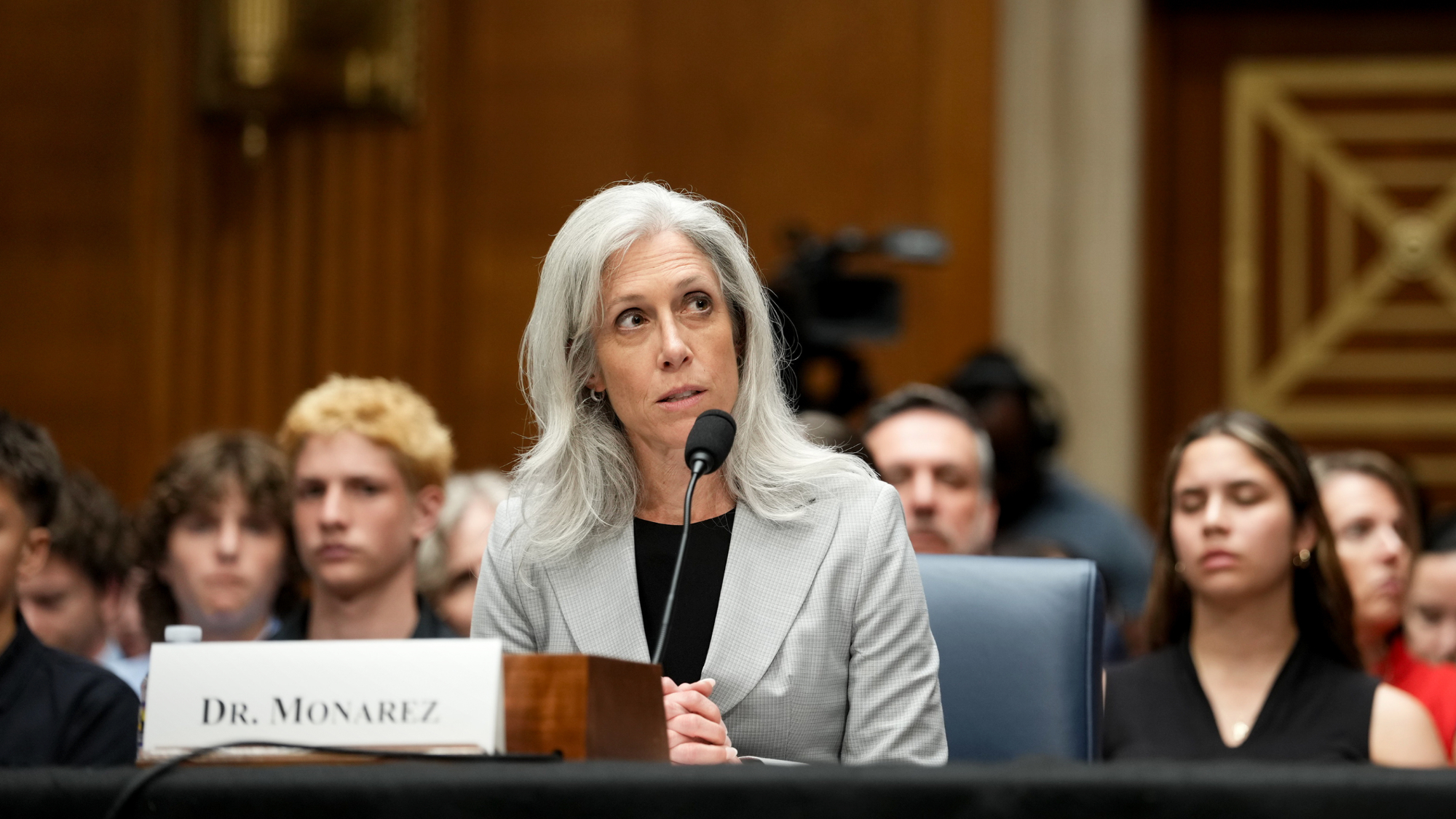North vs. South: how coronavirus has widened Britain’s wealth gap
Government recovery plan criticised as think tank reveals pandemic has hit northern regions hardest

A free daily email with the biggest news stories of the day – and the best features from TheWeek.com
You are now subscribed
Your newsletter sign-up was successful
The coronavirus pandemic has deepened the inequalities between people living in the south of England and those in the north and Midlands, new research shows.
The newly published State of the North report from the Institute for Public Policy Research (IPPR) reveals proportionally higher levels of unemployment and child poverty in northern regions, despite Boris Johnson’s pledge at last year’s election to “level up” the UK.
“Covid-19 has thrown our long-term inequities and lack of resilience into a stark spotlight,” says the think tank. “A recovery that simply restores the old order would be unsustainable and – for many – unacceptable.”
The Week
Escape your echo chamber. Get the facts behind the news, plus analysis from multiple perspectives.

Sign up for The Week's Free Newsletters
From our morning news briefing to a weekly Good News Newsletter, get the best of The Week delivered directly to your inbox.
From our morning news briefing to a weekly Good News Newsletter, get the best of The Week delivered directly to your inbox.
What did the IPPR find?
The IPPR says the North is “experiencing levels of unemployment not seen since 1994” as a result of the pandemic, with areas subjected to the harshest Tier 3 Covid restrictions suffering the most.
“In October, 657,900 people claimed unemployment-related benefits in the north of England, with Tier 3 Blackpool, Middlesbrough and Hull among the hardest hit,” the report says. “That is almost double the number in October 2019, when there were 340,220 northern claimants.”
The report says that rates of child poverty are also higher in the North, affecting one in three children, while the gender and ethnicity pay gap is wider and life expectancy is below the average for England.
A free daily email with the biggest news stories of the day – and the best features from TheWeek.com
Although the hardship is disproportionately affecting the North, however, areas of the South are also feeling the ill effects of the pandemic.
Of all the English regions, London has seen the biggest year-on-year increase in unemployment benefit claimants, with an extra 302,910 people signing up for income support - a 5% rise.
By contrast, the southwest of England has seen one of the lowest annual percentage increases in joblessness, at just 2.9%.
Why lies behind the differences?
The report suggests that the disparities are down to a “one size fits all” approach to compensating coronavirus-affected areas that fails to take into account historic differences between the North and South.
A “decade of austerity has eroded resilience” across the North and “severely hampered its ability to deal with the social and economic impacts of the Covid-19 pandemic”, the authors say.
The publication of that verdict comes after Greater Manchester Mayor Andy Burnham (pictured top) accused Boris Johnson of playing a “game of poker with people’s lives” by forcing the city back into the highest Covid restrictions in October.
Burnham warned that local people faced “a winter of real hardship”, after ministers pushed the region to accept less than the £65m requested “to prevent poverty, to prevent hardship, to prevent homelessness”.
Johnson has also faced growing pressure from his own backbenches, with a number of the Tory intake who won seats in the “Red Wall” in last December’s election calling on the government to honour its pledge to invest in northern regions.
What is being done?
Responding to the IPPR report, a spokesperson for HM Treasury insisted that the government is “totally committed to levelling up opportunities across the whole of the UK as we build back better”.
Downing Street is taking “significant steps with new investment in green technologies to create thousands of high-quality jobs in the North, setting out plans for freeports, and investing £100bn in infrastructure to boost growth”, the spokesperson added.
The measures are part of Johnson’s plan for a “green industrial revolution”, which the prime minister says will create up to 250,000 jobs in green energy, many of which will be in the North, Midlands, Scotland and Wales.
But despite the plans, IPPR North director Sarah Longlands is warning that with “Brexit is just around the corner”, a “recovery from Covid-19 that simply restores the status-quo - which has failed so many Northerners - would be unacceptable”.
“The government was elected on a promise to ‘level up’ places like the North,” she said. “But one year on, they don’t have a plan to reduce inequalities between and within regions in England, and the inadequate, centrally controlled, competitive ‘levelling up’ fund announced in the spending review simply won’t cut it.
“We need to challenge old, reductive assumptions about our economy because they’ve failed to create the conditions for a good life for everyone in the North.”
-
 How to Get to Heaven from Belfast: a ‘highly entertaining ride’
How to Get to Heaven from Belfast: a ‘highly entertaining ride’The Week Recommends Mystery-comedy from the creator of Derry Girls should be ‘your new binge-watch’
-
 The 8 best TV shows of the 1960s
The 8 best TV shows of the 1960sThe standout shows of this decade take viewers from outer space to the Wild West
-
 Microdramas are booming
Microdramas are boomingUnder the radar Scroll to watch a whole movie
-
 How corrupt is the UK?
How corrupt is the UK?The Explainer Decline in standards ‘risks becoming a defining feature of our political culture’ as Britain falls to lowest ever score on global index
-
 The high street: Britain’s next political battleground?
The high street: Britain’s next political battleground?In the Spotlight Mass closure of shops and influx of organised crime are fuelling voter anger, and offer an opening for Reform UK
-
 Is a Reform-Tory pact becoming more likely?
Is a Reform-Tory pact becoming more likely?Today’s Big Question Nigel Farage’s party is ahead in the polls but still falls well short of a Commons majority, while Conservatives are still losing MPs to Reform
-
 ‘We owe it to our young people not to lie to them anymore’
‘We owe it to our young people not to lie to them anymore’instant opinion Opinion, comment and editorials of the day
-
 Taking the low road: why the SNP is still standing strong
Taking the low road: why the SNP is still standing strongTalking Point Party is on track for a fifth consecutive victory in May’s Holyrood election, despite controversies and plummeting support
-
 ‘This isn’t just semantics’
‘This isn’t just semantics’Instant Opinion Opinion, comment and editorials of the day
-
 RFK Jr. faces bipartisan heat in Senate hearing
RFK Jr. faces bipartisan heat in Senate hearingSpeed Read The health secretary defended his leadership amid CDC turmoil and deflected questions about the restricted availability of vaccines
-
 White House fires new CDC head amid agency exodus
White House fires new CDC head amid agency exodusSpeed Read CDC Director Susan Monarez was ousted after butting heads with HHS Secretary Robert F. Kennedy Jr. over vaccines